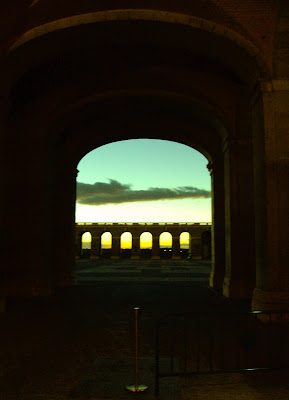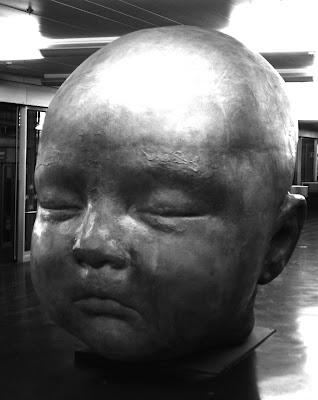Larry Kramer
‘I love being gay. I love gay people. I think we’re better than other people. I really do. I think we’re smarter and more talented and more aware and I do, I do, I totally do. And I think we’re more tuned in to what’s happening, tuned into the moment, tuned into our emotions, and other people’s emotions, and we’re better friends. I really do think all these things.’
Larry Kramer wrote the screenplay for Ken Russell’s Women In Love but what brought him more lasting prominence, or at least notoriety, was the novel Faggots which in 1978 documented the last great years of sexual freedom for gay men in New York before AIDS cut through the city like an invisible tidal wave. Faggots was no celebration of debauchery, rather it was a plea for understanding from a community that needed love but got only betrayal, sex, opiates and self-loathing. Lots of gay men hated the book. The scene depicting the fire in the bathhouse (based on an actual blaze that killed nine men) seems something like a hell of our own making. The party was soon over.
‘Kramer became involved in gay activism when friends he knew from Fire Island began getting sick in 1980. In 1981, Kramer invited the "A-list" group of gay men from the New York City area to his apartment to listen to a doctor say their friends' illnesses were related, and research needed to be done. The next year, they named themselves the Gay Men's Health Crisis (GMHC), and became the primary organization to raise funds for and provide services to people stricken with Acquired Immune Deficiency Syndrome (AIDS) in the New York area.’ (Wikipedia)
GMHC is still the largest organisation of its kind in the US. After this point Kramer became the thorn in the side of both the homophobic establishment and gay apathy alike. When the government was wilfully slow to act on hundreds of dying Americans in the 1980s, Kramer started ACT-UP.
He’s still fighting both his own illness and the establishment that didn't expect him to live so long.
David Hoyle
‘When any of us start to look for approval and encouragement from within the corporate sector, you might as well top yourself. And that’s what we’re going to do tonight’
‘People often ask me if I prefer Manchester United or Manchester City, and I always say, they’re both lovely’
‘Join us as we explore Manchester’s Gay Village, its relevance - what is it saying to us? Is it a powder keg of the avante garde?’
It’s hard to think in ‘iconic’ terms of someone who’s been round to your flat but the various charming, disarming, scary and/or confrontational personae of fellow Blackpudlian David’s on-stage creations can always leave you star-struck and panting. That his incarnation as the Divine David caught the imagination of so many (the adoring and trend-setting Duckie collective amongst them) was indicative not only of how high he set the bar for politicised ‘cabaret’ but of something like a change of consciousness in the gay scene. In other words, you hoped that everyone would get him, and they did. Gay people sometimes need a brutally scathing kind of satire to shake us up and David’s always starts from the assumption/insistence that we all love each other first. No doubt he’s spiritual godfather of sorts to post-gay performance terrorists like Jonny Woo and Scottee, but mostly he’s just very, very funny.
Lawrence D. Mass and Arnie Kantrowitz
Aged twenty I was most likely an incipient alcoholic, certainly deeply closeted, and a student. On my University course and in my own reading I immersed myself in any kind of liberation literature I could get my hands on. I studied feminist rhetoric and did my dissertation on Civil Rights novels in either a repetitive act of masochism or a subconscious attempt to try and learn the language of liberation myself for use at some hazy point in the future. I was in the midst of my Jewish phase when I came across Larry Mass’s book Confessions Of A Jewish Wagnerite. It had a naked man on the cover, I don’t know how I dared buy it, I didn’t actually remember picking it up when I got home, perhaps I stole it. I hope so.
The series of autobiographical essays are about Mass’ coming-to-consciousness as a forcibly assimilated and self-denying Jew, and as a gay man. It’s full of opera of course, and is frequently, horribly bourgeois (at one point he walks into an ostentatiously over-decorated room and is so offended he actually vomits). It’s also deeply insightful, beautifully written and responsible for the tiny seed that helped me eventually come out after another four years of trying to party myself dead.
Along with Larry Kramer and others, Mass, a physician, was one of the founders of GMHC and published the very first paper addressing the spate of mysterious illnesses affecting gay men in urban areas. His partner of many years is Arnie Kantrowitz who wrote Under The Rainbow, a heart-rending but hopeful autobiography about growing up gay in America. Kantrowitz is also a lifelong activist, co-founder of the Gay and Lesbian Alliance Against Defamation (GLAAD) amongst other things, one of that generation who just seem tireless when we can’t usually be bothered to even sign a petition, let alone bury a friend every week for ten years and still find the strength to write, educate, work and teach. Arnie has no Wikipedia entry, I think I’ll write one for him.
Frank O’Hara
‘Steps’
How funny you are today New York
like Ginger Rogers in Swingtime
and St. Bridget's steeple leaning a little to the left
here I have just jumped out of a bed full of V-days
(I got tired of D-days) and blue you there still
accepts me foolish and free
all I want is a room up there
and you in it
and even the traffic halt so thick is a way
for people to rub up against each other
and when their surgical appliances lock
they stay together
for the rest of the day (what a day)
I go by to check a slide and I say
that painting's not so blue
where's Lana Turner
she's out eating
and Garbo's backstage at the Met
everyone's taking their coat off
so they can show a rib-cage to the rib-watchers
and the park's full of dancers with their tights and shoes
in little bags
who are often mistaken for worker-outers at the West Side Y
why not
the Pittsburgh Pirates shout because they won
and in a sense we're all winning
we're alive
the apartment was vacated by a gay couple
who moved to the country for fun
they moved a day too soon
even the stabbings are helping the population explosion
though in the wrong country
and all those liars have left the UN
the Seagram Building's no longer rivalled in interest
not that we need liquor (we just like it)
and the little box is out on the sidewalk
next to the delicatessen
so the old man can sit on it and drink beer
and get knocked off it by his wife later in the day
while the sun is still shining
oh god it's wonderful
to get out of bed
and drink too much coffee
and smoke too many cigarettes
and love you so much
Terry Higgins
Such is the monolith of the charitable industries of AIDS that the name ‘Terrence Higgins’ has become little more than a brand, but the story of the first man in the UK to officially succumb to AIDS is nothing short of film-worthy. Born in 1945, a genuine baby-boomer, Terry was only 37 when he died of the disease in 1982. He was a renegade with a debauched, maverick sense of humour (he‘d painted his Royal Navy ship with a hammer and sickle to get himself discharged).
At the time he became sick he was working as both Hansard Reporter in the House of Commons and as a barman in Heaven, the oldest gay club in London, which meant he could walk from his day-time overground life to night-time underground existence in a matter of minutes and if there’s a better metaphor for the duality of gay life I’d like to hear it.
It was in Heaven, summer 1982, that Terry collapsed on the dancefloor as the sickness started to take hold. Such was the dearth of knowledge about the illness in those early years that Terry’s boyfriend selected to study HIV as part of his PhD, and tested positive himself, in his own lab, in 1984.
Asked what Terry might have made of having a charity set up in his memory, his boyfriend said, ‘I think he would have found it very funny’. He sounds like a man worth knowing.
Arthur Russell
‘It's a big old world
with nothing in it
and I can't wait to see you
another minute’


















